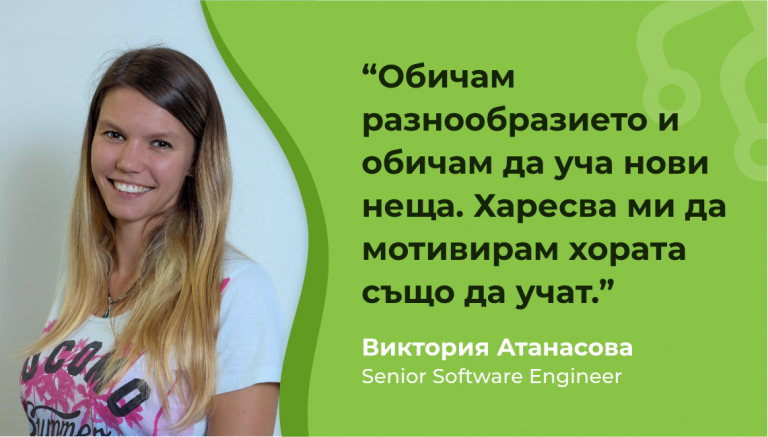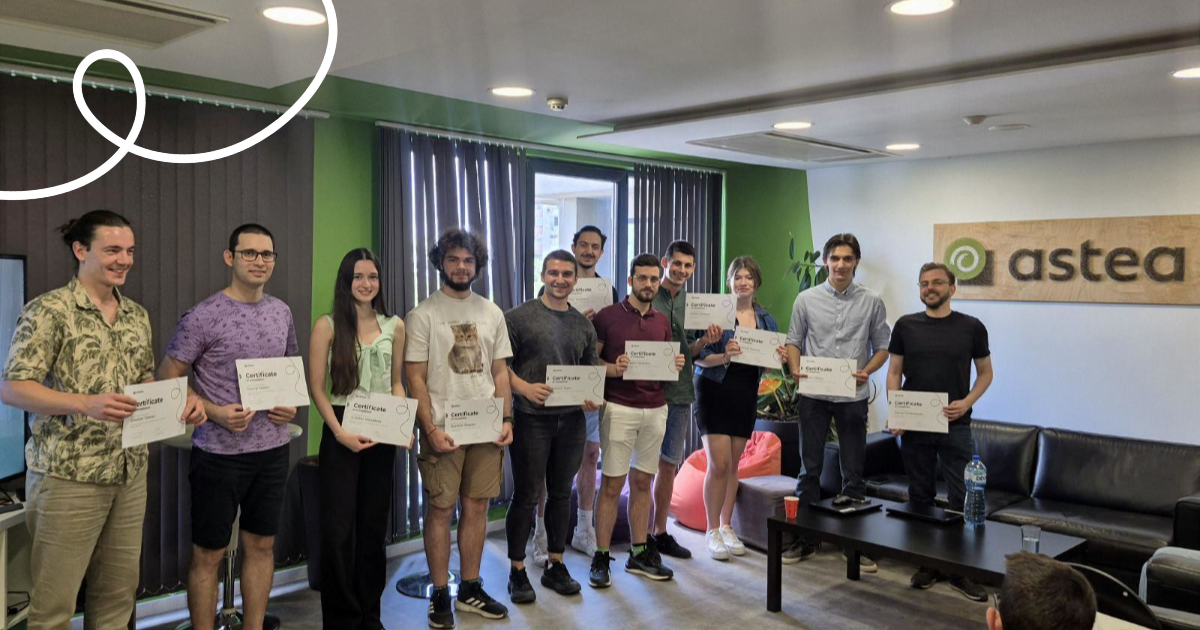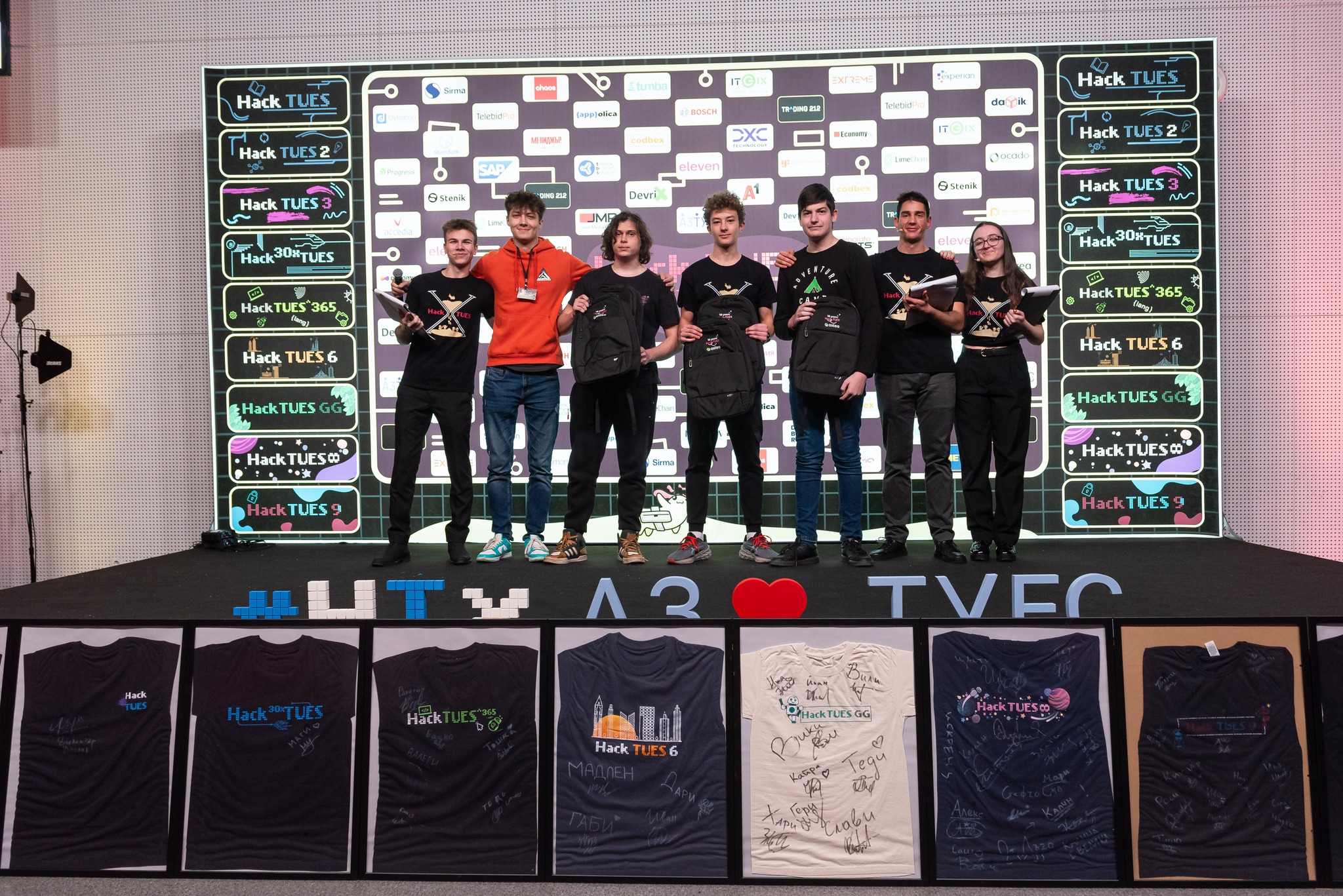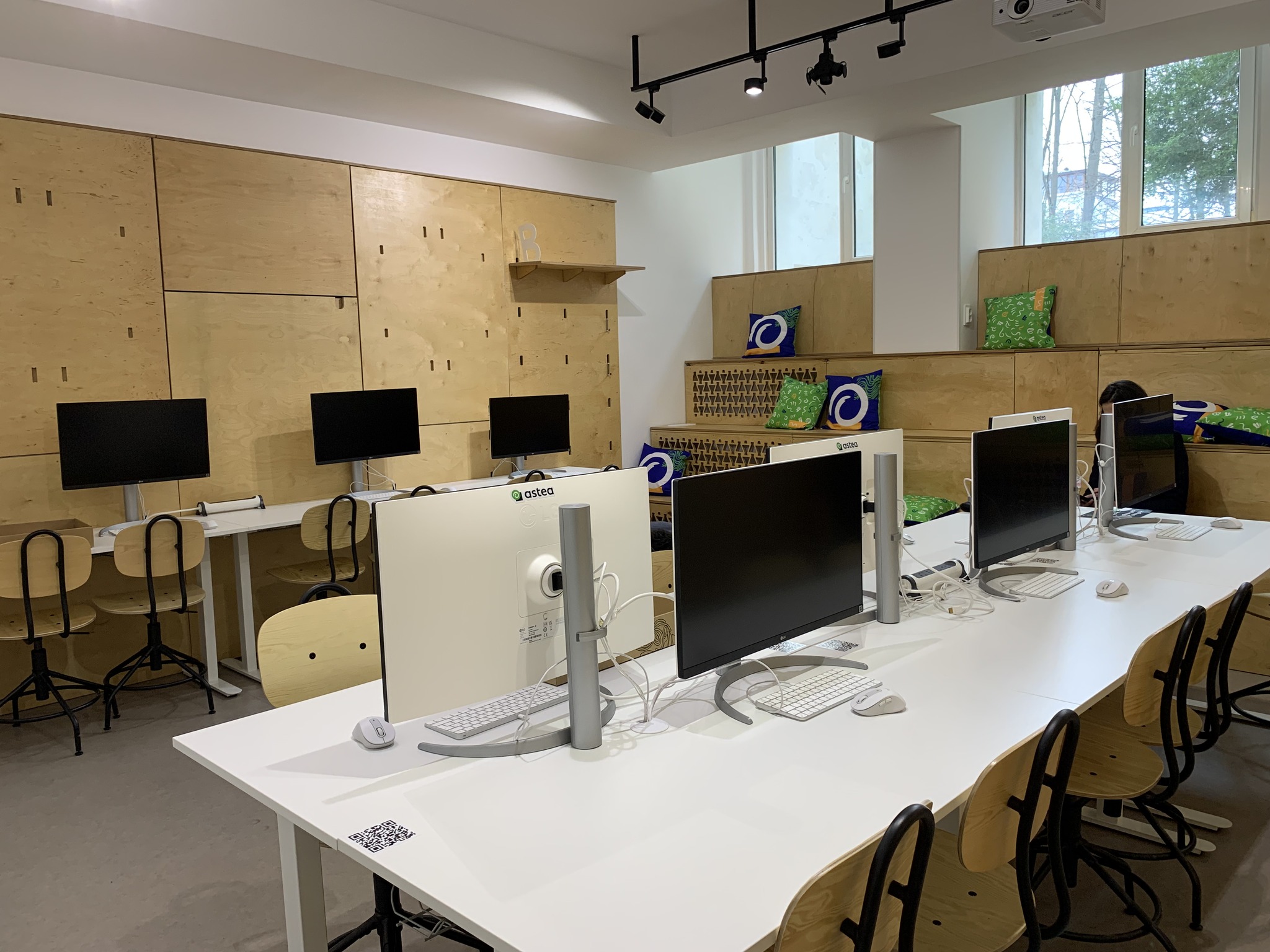Viktoria Atanasova joined Astea Solutions as an intern, and today she is a senior developer and takes an active part in the organization of the company’s intern program. After years of programming and mentoring, she chose to join as a QA intern in the eighth edition of the program. What is the motivation behind her decision and what are the lessons that a programmer can learn from writing end-to-end tests – Victoria talks about the drive to develop.
Introduce yourself – tell us more about yourself.
Hello! My name is Victoria and I am 26 years old, born in Sofia. I have always loved math, ever since I was very young. And although after that I studied drawing in elementary school, and after that accounting in the Commercial and Banking High School, I graduated in Computer Science at FMI, SU and finally Business Administration at StF, SU. I have been working as a programmer for 5 years, all of my experience being at Astea. I prefer to spend my free time outside – in parks, mountains, seas, walking around cities. Indoors, I got pretty into coloring outline pictures, doing puzzles, reading books.
Your journey at Astea began with the internship program in 2016, and in the last few editions you took an active part from the “other side” as well. What motivated you this time to join the Astea internship in the unusual for you role of QA Engineer?
As you might have guessed by now – I love variety and I love learning new things. I like to motivate people to learn too. So when I gained some experience in programming and teamwork, I decided to try out as a dev mentor in the internship program and I quite enjoyed it (2020). Coincidentally, last edition we needed another QA intern for one of the projects being developed by the interns in the second part of the program. For me, this was the perfect time to take advantage, as I had not yet committed to being a mentor for this program. I’ve done QA stuff before, but a little while ago. So I wanted to recall the forgotten and learn new things, mostly related to writing end-to-end tests. I also knew there was no way it wouldn’t be fun as well as useful. I intended to be a real intern – learning new things, going to the QA lectures in the first part of the program and being a full team member in the second part – and I think I accomplished that.
How did you manage to balance this role as part of the intern team with your experience as a mentor in the program?
It was naive to believe that I would only be able to be an intern on the team, even though I tried really hard. I occasionally pitched in to help with process stuff, use my programming knowledge to help others, write tests, etc. Some of the dev mentors were also reluctant to accept me as an intern and had high expectations from me. This was certainly motivating, but also difficult to achieve at times, as I myself had set high goals for the time I had available. In any case, I like to believe that I was able to contribute more than hinder the team.
Did you learn something new about the processes involved in building successful software in a QA role? And for herself?
I’ve learned quite a few interesting things along the way writing end-to-end tests. I used the latest versions of the test frameworks and the libraries alongside them and everything looked much better than I remembered. I also learned that it is not easy to manage four programmers, especially when they want to program the whole world. I also found that it’s harder to think of what bugs they might have programmed when you’re not looking at the code. I confirmed to myself that I can have fun with absolutely anything, at any time of the day, as long as there is some challenge involved.
Tell us about the most memorable moment from the process of working on the project.
I can think of some pretty funny things that happened in those few months. But perhaps among the more memorable is when I felt like a real QA. I had already started to frustrate the programmers with various specific problems I was finding that they couldn’t reproduce. How do you know you’re a QA – when programmers start to fear you!
What are the three most important qualities that a mentor should possess in your opinion?
It’s hard for me to list just three, but here are a few qualities that I think are more important in a mentor than specific knowledge (not in order of importance):
- Enthusiastic and motivated, willing to help and teach others
- Give constructive and timely feedback
- To evaluate effort and progress and to encourage improvement
- Be able to communicate and work in a team






